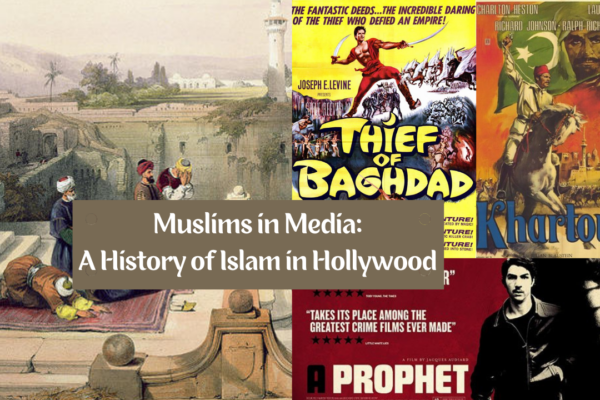Matt Damon refers to Jason Bourne as a movie that is set in the “post-Snowden” world, focusing on the effects of surveillance at the expense of civil liberties, with the original trilogy being based on the Bush administration.[i] And indeed, Jason Bourne does feel like a fresh take on the franchise, with the writers having aptly taken this character and placed him in our modern day world amongst issues and debates that bite at us today. Syrian refugees are seen briefly in the opening, in blink-and-you’ll-miss-them shots, and the film’s first act takes place at the backdrop of an unstable, protest-filled Athens.
Audiences have always had a great love for Bourne – and the ticket sales speak from themselves – yet it is rare to find films that are both so commercially successful and bathed in critical acclaim. We’ve loved Bourne for his innocence: waking up from a botched-assassination job with memory loss, deciding he has an opportunity to be a new, better person. We’ve also loved him for his defiance: deciding he doesn’t want to be a puppet for superpowers that feel they can bend the rules to “defend their country.” He is that person we all want to be, having the courage to turn around and say no to immoral governance.
The Bourne films have always been a refreshing stance that differed from what we were used to. When Greengrass was asked if he’d ever direct a Bond film, he responded, “Bond is always working for Them, the state. Whereas Bourne is – definitively – working for Us, the people.”[ii] Bond was always about the British empire protecting its glory with a licence to kill. Bourne however, asks us what happens when someone with a licence to kill sees all that blood on his hands. It’s upsetting that it was necessary for the Bourne movies to begin that it made us realise the problems with most spy-action movies of similar genre. Pleasingly however, it embarrasses any spy movie post-Bourne. The 007 series quickly reinvented itself after The Bourne Identity’s release, with Casino Royale showing James Bond as a vicious killer with evident anger and anti-authority issues, who has been moulded into a calmer, less collateral-loving man of morals. Watching a movie like Jack Ryan: Shadow Recruit is unbearable, with its opening scene showing the character witnessing the terrible 9/11 attacks on TV, cringingly followed by him suddenly in Afghanistan, “serving his country,” with the movie trying to dupe us that the two are related. Needless to say, similar scenes occur in American Sniper. But you can’t fool us, mainstream Hollywood, not in this post-Bourne world.
This instalment, gratifyingly entitled Jason Bourne, is wonderfully unapologetic when it comes to criticising the intelligence programmes of our modern day democracies. After a kill in London by an “asset,” (essentially a CIA covert spy) a CIA agent assures his superior not to worry, as they’ve already pinned the attack on an Iraqi who will naturally be blamed. Riz Ahmed’s character battles with the CIA’s desire to tap into the privacy of his social networking company, (a clear parallel of Facebook) debating whether or not privacy is a freedom or a roadblock in the way of protecting democracy. There’s more of this too, but I’ll let you enjoy the movie by keeping it as surprises.
As a side note, it’s wonderfully uplifting to see a Muslim (and a Wembley boy, for all you Londoners!) in mainstream Hollywood, and even more so, to see him in a starring and non-terrorist (!) role. It’s a reminder to us all that Hollywood needs to make more steps towards inclusivity – when’s the last time you saw a Muslim in a Hollywood movie?) – for it is one of the biggest spheres of influence. If you think Fox News is damaging the Muslim image, remember that the number of Americans that watch it is abysmal compared to the number of Americans that flock to watch Hollywood’s blockbusters. To further this, even the Secretary of State, John Kerry, sits down with Hollywood executives to discuss which narratives to push.[iii] I’m very pleased to see a movie like Jason Bourne (and others) opt for someone like Riz Ahmed for a role over another white actor, something that has become so prevalent in the industry.
All this being said, it is a truly wonderful movie. Even if you don’t care about its undertones, there’s action galore, plenty of Matt Damon using tables and chairs as weapons, and an exhilarating car chase scene in the film’s third act. Jason Bourne’s story seemed to wrap up nicely with The Bourne Ultimatum, yet the script still finds ways to evolve his character – played wonderfully again by Matt Damon – as one that is continuously battling with his past. He is someone who is discovering who he really is, as are we all, and perhaps that’s what makes his character so loveable, believable and relatable. The film itself is familiar enough to be a Bourne film, yet original enough to be a new take on the series, with a wonderful storyline concerning his pre-Treadstone past. You’ll be rooting for Bourne till the very end.
Both thrilling and thought-provoking, Jason Bourne is Bourne once again.
Rating: 4 stars out of 5
(Halal notes: Light violence.)
Footnotes
[i] https://www.buzzfeed.com/adambvary/matt-damon-bourne-film-about-post-snowden-world?utm_term=.iiNAZ1RYE#.qmKq0KlE9
[ii] http://www.radiotimes.com/news/2016-07-27/id-never-make-a-bond-movie-says-bourne-director
[iii] http://www.latimes.com/entertainment/envelope/cotown/la-et-ct-john-kerry-hollywood-isis-20160216-story.html





